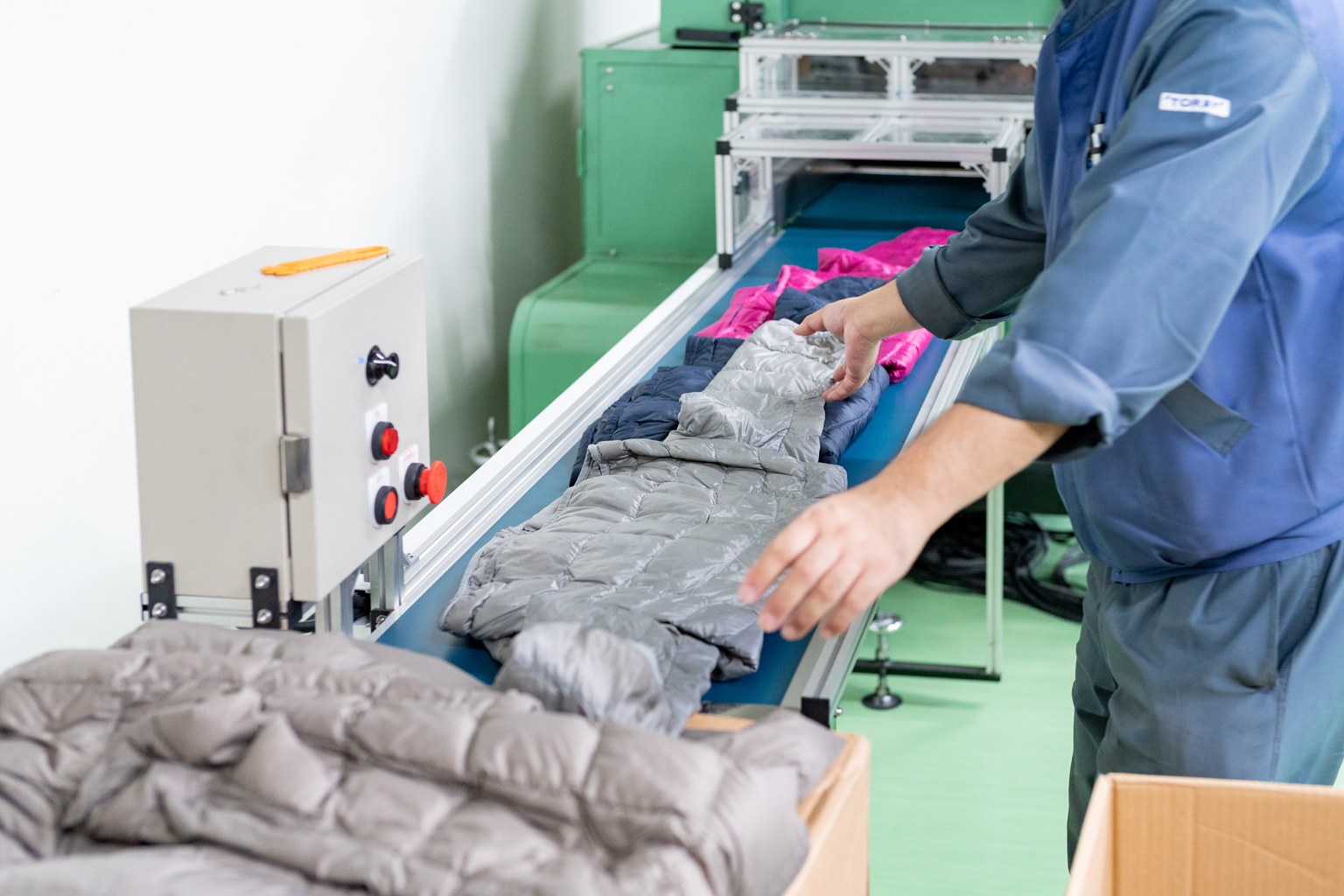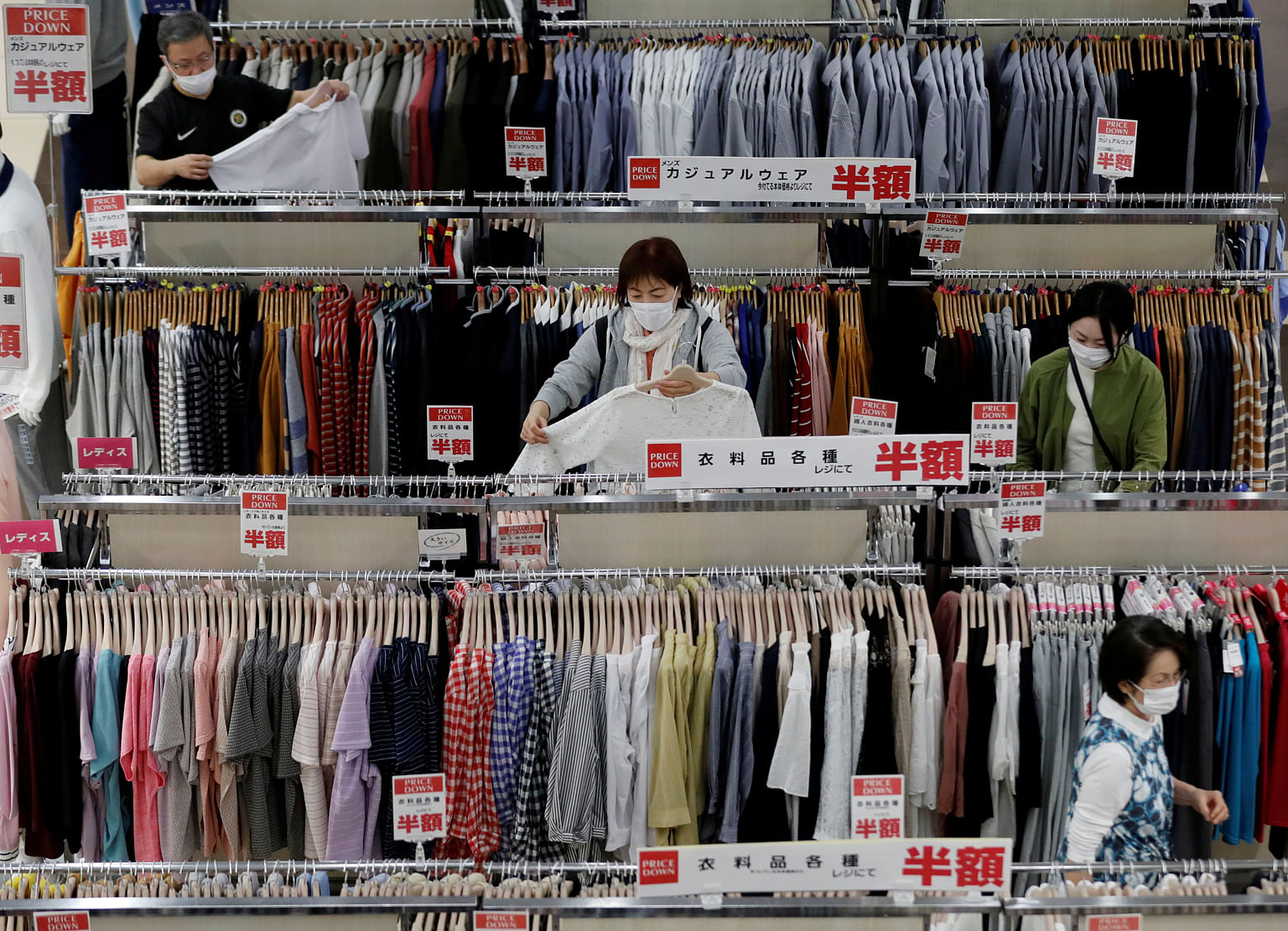Japan's fashion industry gets a green makeover
Sign up now: Get insights on Asia's fast-moving developments

Unwanted down jacket products being recycled by Fast Retailing, the parent company behind the Uniqlo brand.
PHOTO: FAST RETAILING
TOKYO - Japan's fashion industry is undergoing a makeover, with labels such as Asics, Muji and Uniqlo pledging to go green to shed the scourge of pollution associated with the trade.
Fashion is said to be the second-most pollutive industry globally, after the oil industry, with massive amounts of carbon dioxide emitted and water sucked up across the supply chain, not to mention the tonnes of clothing that are thrown away and incinerated each year.
Data from Japan's Ministry of the Environment last year shows that the production of one piece of garment involves, on average, the release of 25.5kg of carbon dioxide into the air and the use of about 2,300 litres of water.
For clothes sold in Japan, an estimated 95 million tonnes of carbon dioxide are emitted each year - or 4.5 per cent of the total emissions of the global fashion trade - with about 8.4 billion cubic m of water consumed - or 9 per cent of the global trade.
Yet, an average 480,000 tonnes of clothing are incinerated or buried in landfills each year, with just 34 per cent reused or recycled, noted the ministry.
"Given the interconnected supply chain, a lot of resources are being tapped worldwide to make each piece of clothing, and the environmental burden is growing with more clothing being produced," the ministry said.
Japan's official pledge in 2020 to achieve carbon neutrality by 2050, and to slash its greenhouse gas emissions by at least 46 per cent from 2013 levels by 2030, has spurred companies to take action.
The Japan Sustainable Fashion Alliance, an Environment Ministry-backed initiative with 28 companies on board thus far, held its first meeting in November.
The industry group is led by outdoor apparel brand Goldwin, trading firm Itochu and recycling start-up Japan Environment Planning (Jeplan), with companies such as Asics and Muji parent company Ryohin Keikaku on board.
Textile maker Toray Industries, whose materials are widely used in Uniqlo clothing such as its Heattech and Airism labels, is also in the alliance.
Jeplan chief executive Masaki Takao said: "Due to the complex and long supply chain of the fashion industry, sustainability cannot be achieved if society does not work together as a whole. It is also necessary to work on changing consumption behaviour."
This could be a challenge, especially since shopper demand for sustainably produced clothing remains lukewarm. Also, many consumers are unaware of - if not uninterested in - how their clothing is made and the resulting environment impact.
A study by the Environment Ministry showed that only 4 per cent of shoppers actively buy sustainable fashion. Another 51 per cent "have interest" in sustainability issues but this does not translate into action, while 41 per cent said they do not care.
What this means is that it is up to companies to drive change, including setting up collection bins for old clothes that are then recycled into brand new apparel or donated to refugees or the homeless.
While not part of the industry group, retail giants Aeon and Takashimaya last year each launched new products made fully from recycled apparel.

Separately, Uniqlo parent Fast Retailing has laid out its sustainability targets towards a net-zero carbon goal by 2050. It said that by 2030, it aims to raise the percentage of recycled fabrics used in its products to 50 per cent, while using 100 per cent renewable energy for all its in-house operations, among other things.
"We don't feel that our responsibility ends with the making, transporting and selling of clothes," group senior executive officer Koji Yanai told a news conference last month.
He noted how the company has donated old clothes to refugees and evacuees in Japan.
In 2020, it launched a recycled down jacket in what was its first product-to-product recycling initiative.
Mr Yanai said: "Going forward, we want to create more ways of promoting clothes-to-clothes recycling, as we have done with our recycled down jackets, or turning second-hand clothes into different resources."
Mr Yukihiro Nitta, who is in charge of sustainability at Fast Retailing, added that the company will launch a research and development facility with Toray Industries this year to advance recycling and materials development.
The company is also in talks with automakers, construction and other materials manufacturers, he added, stressing the need to build a circular economy.


